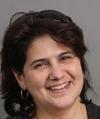Infection
RSV infections increasing among infants, young children at Long Island hospitals
The two largest children’s hospitals on Long Island are reporting an uptick in the number of young patients with RSV, a contagious respiratory virus that caused an early and serious surge in illnesses last year.
Dr. Lorry Rubin, chief of the division of pediatric infectious disease at Cohen Children’s Medical Center in New Hyde Park said there has been a “major increase” in RSV infections coming into the emergency department.
“It’s nearly filling up the hospital already,” he said. “The curve is similar to last year. Typically RSV infections peak in December or January. Last year and this year, it started in earnest in October.” He said cases peaked in November last year.
Stony Brook Children’s Hospital is seeing a “huge amount of cases” among infants and those a few years older, said Dr. Sharon Nachman, division chief of pediatric infectious disease.
“I actually think we are seeing more cases right now than we did at this time last year,” said Nachman. “We are seeing kids with no medical problems and we’re seeing kids with some underlying medical issues…The virus doesn’t care who you are.”
Both Rubin and Nachman said it’s too soon to have hard numbers comparing cases this year with last season. But this early surge comes as health officials continue to monitor flu and COVID-19 cases in preparation for a “tripledemic” of respiratory viruses during the winter.
“Hopefully it won’t get to the [same] point as last year in terms of in-patient burden,” said Rubin. “We were very much stressed with finding enough beds to house all the children that needed them.”
This is the first year RSV vaccines are available for older people and pregnant women as well as a new monoclonal antibody treatment for infants and some toddlers.
Nachman said there is currently not enough supply of the monocolonal antibody treatments for children who are at the highest risk of serious illness from RSV.
Rubin said he hopes the treatments will ease cases this season and have a “dramatic impact” next winter in preventing RSV hospitalizations in infants.
Most children get an RSV infection before the age of two and it is usually only a cold, experts said. But some children develop more serious symptoms such as fever and breathing problems requiring hospitalization.
The CDC estimated that 80,000 children younger than five across the U.S. were hospitalized because of respiratory syncytial virus last season. The agency estimates it causes between 58,000 to 80,000 hospitalizations annually among that age group.
Rubin said some kids who test positive in the emergency room are able to be treated at home. But others – mostly infants – are being admitted.
“The majority of the cases have been under 9 to 10 months of age,” he said, adding there are older children with medical conditions.
That includes 9-year-old Penelope Wood of Kings Park, who was waiting to be admitted into a room at Cohen’s on Thursday.
“She was complaining of a sore throat and spiking a fever,” said her mother, Allyson Wood. “She has leukemia and if she gets a fever, she has to come in immediately.”
Doctors were keeping a close eye on Penelope’s white blood count, while her mom and hospital staff kept her busy with games of UNO and crafts.
“They will monitor her to make sure that it doesn’t get into her lungs and her fever doesn’t keep spiking,” Allyson Wood said.

